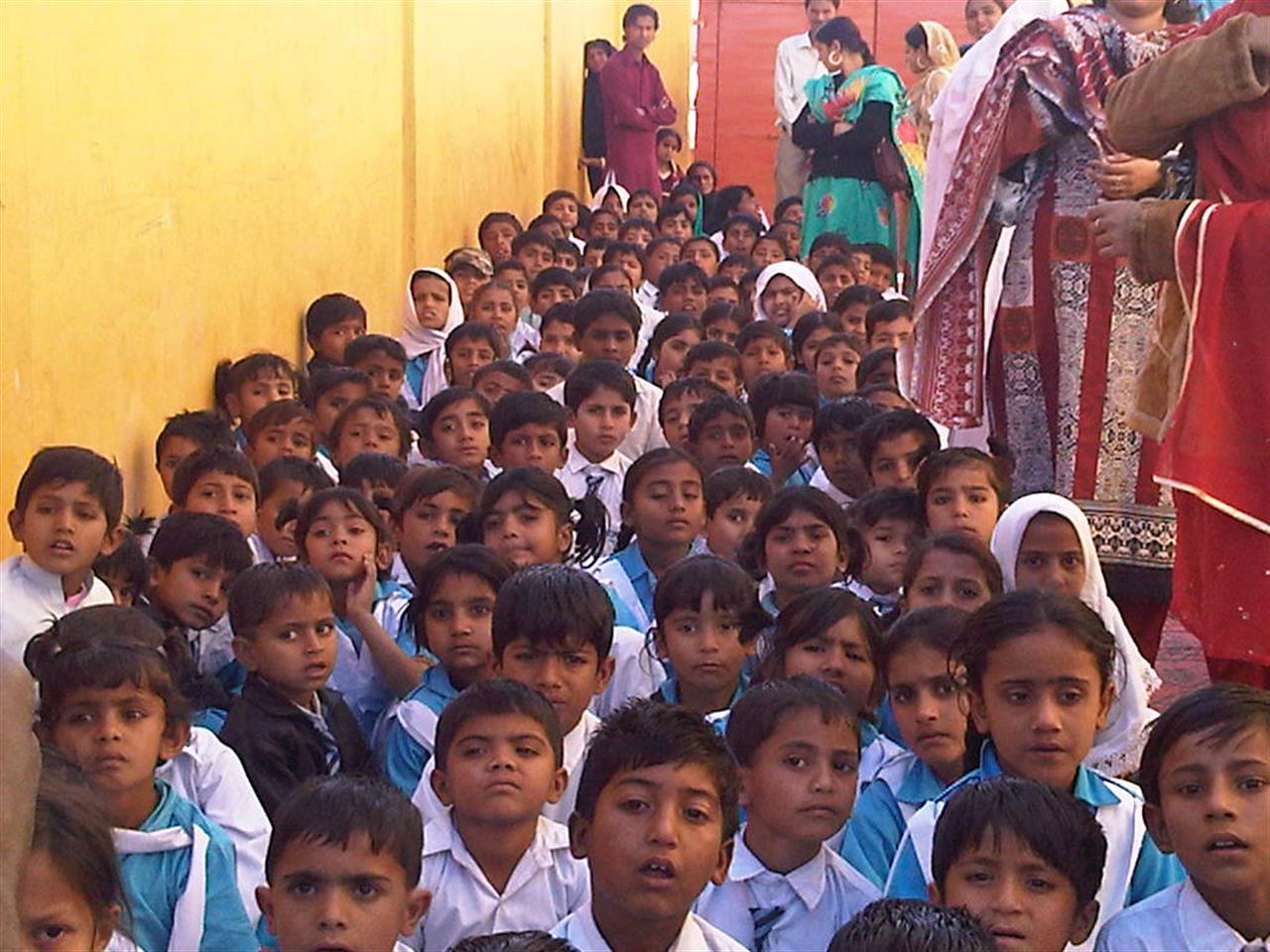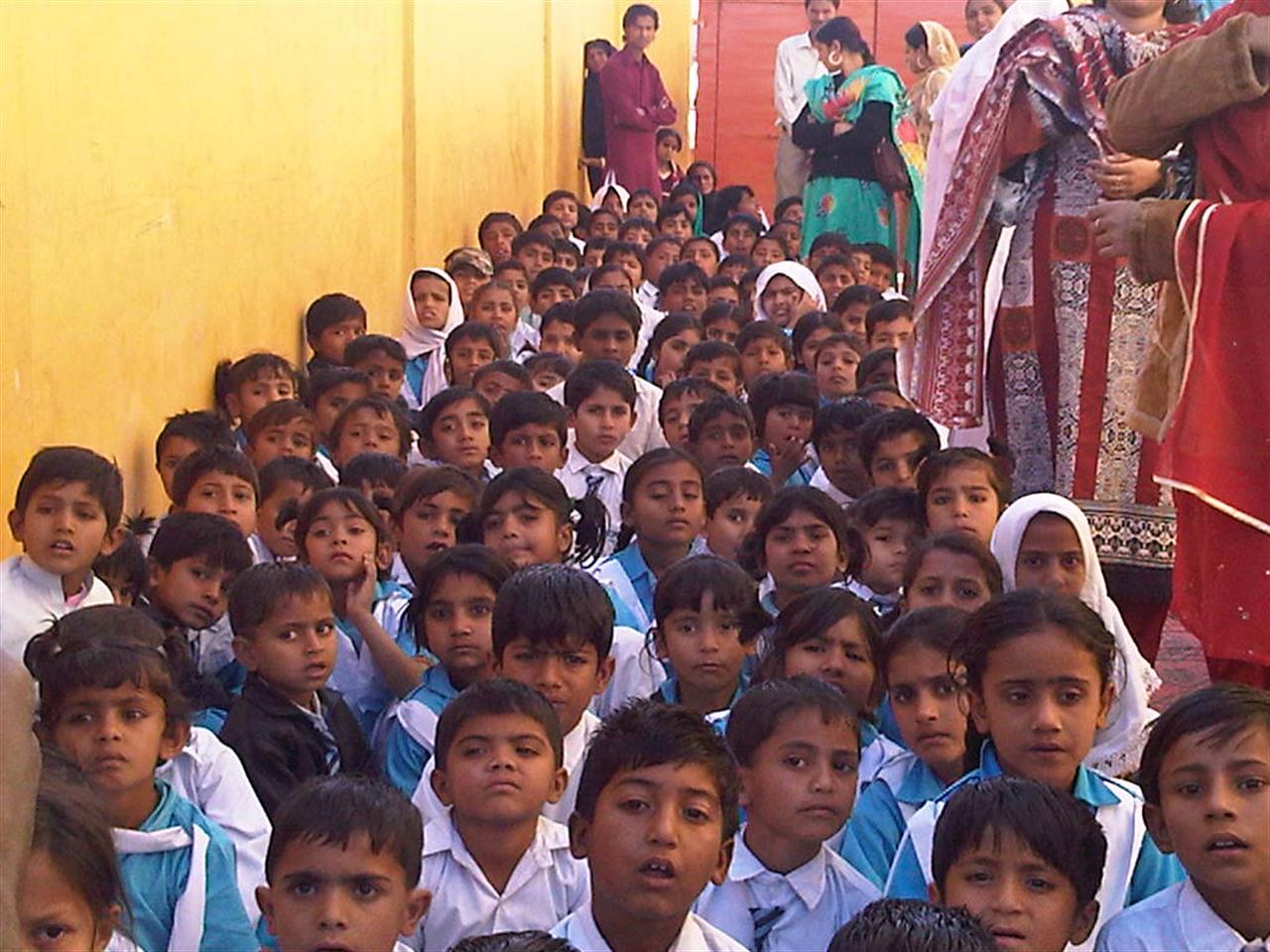
Travelling to Pakistan, I was not expecting to learn anything useful for my work in Europe. After a week spent in Karachi I had to reassess my expectations.
In a country unravelled by all sorts of conflicts, slow economic growth, high illiteracy and fast demographic growth – 2/3 of population is below 25 years old – the government seems too busy dealing with security and power struggle to provide access to education and health.
Pakistan is at the top of the world’s aid recipients but almost every cent goes to government and the army. Little of such largesse reaches society. Public schools and hospitals usually operate on the paper only.
Perhaps because of the many challenges, this is the most fertile breeding ground for philanthropists, social entrepreneurs and innovators; people who don’t wait for any Big Society Agenda to act, unable to remain indifferent to social injustice.
Actually Pakistan seems to be one of the world’s top countries for indigenous philanthropy – including its diaspora community.
I want to share 4 cases which could be inspirational and perhaps adopted in Europe.
The Pakistan Poverty Alleviation Fund (PPAF) is a $1.3bn multilateral initiative led by the Government of Pakistan (GoP) and the World Bank, working in partnership with aid agencies and multinational corporations. It’s the largest of this type of investment in the world. What makes this fund exceptional is the fact that it is putting in place all the recommendations you can find on social innovation, enterprise and investments. For instance only 1% of the total budget is allocated to overheads – staff wages included – since the fund operates through local intermediaries only: both private and public, for profit and not for profit. It also builds the capacity of partners reaching down to the single village. All financial instruments are used – loans, microcredit, equity, guarantees, grants, endowment etc. The fund was established in 1997 by the GoP as an non-profit organisation and has been fully operational since 2000 giving 3.8 million loans, working with over 99 local partners and reaching 89,000 villages in 129 districts across the country . It seems what is still just discussed in the most progressive European circles, is happening in Pakistan.
Orangi Pilot Project was initiated 30 years ago by the Pakistani economist Akhtar Hameed Khan, mentor of the Nobel Prize laureate Moahmmed Yunus. It’s a community led initiative to develop the urban environment of Orangi Town, a neighbour of Karachi in which 1.8m people live. At the time it was rated as the largest shanty town in the world. The peculiarity is that the local community has never received any funding, just technical assistance to put in place all the necessary means to develop and manage public services such as sanitation, health and housing. Such a bottom-up and self-funded approach has been so successful to influence government policy in the field.
Naya Jeevan (which means New Life) was established by Dr Asher Hasan, a British doctor from a Pakistani family background, to provide health insurance for low skilled workers using multinational corporations as funders and distribution chain. While the first part is not surprising as multinational can easily account the payments as CSR, and the distribution chain element is the real innovation. Only multinationals like Nestle can reach millions of people up to the most remote village using their entire supply and distribution chains. Naya Jeevan is using the multinationals as networks to insure workers from life risks and even establish mutuals.
Iqra University is a private university funded by Hunaid H. Lakhani to provide access to business education for Pakistani youth, both males and females, reaching beyond the kids of the richest families who can pay for expensive fees or are selected for public education. The surprising aspect of this University is that it’s 100% sustainable – meaning running costs are covered by fees alone, without public funding or private donations! You could call it a social enterprise as it charges only affordable fees from students who come from a middle-class background. It has 7 campuses and around 35’000 students in the main cities of the country. However, sustainability is combined with top ranking education quality: including the highest number of PhDs in its faculty. The success of its unique business model is transforming the university in a business hub in which all services are outsourced to reduce costs and fees to the minimum, and working opportunities for all the students are provided to increase their opportunities of accessing education. Despite the high unemployment in the country, all the students of Iqra University are in work before finishing their degree.
Such extraordinary social initiatives wouldn’t be possible without the passion and competence of Pakistanis. Dr Darren and I had the opportunity to meet some of them in our visit.
Saad Amanullah Khan, CEO of Gillette Pakistan and President of American Business Council is a role model for the whole business community in Karachi. I was surprised to see him spending more time in social projects than his business.
From a younger generation but with the same passion, Faraz Khan and Khusro Ansari, founders of Seed Ventures, must be recalled as they persuaded me to discover another Pakistan beside what media portrays and took care of us from our first step on Pakistani soil to the last one.
Last but not least, Unjela Kaleem Siddiqi, former World Bank official and and co-founder of a consulting firm URBANICS. It’s thanks to her that we have been able to discover all these extraordinary initiatives and more.
All together we are exploring how can we build on this, connecting the EU to such valuable people and initiatives. The EU has been pretty quiet actor in Pakistan despite its financial commitments. Extending European policy, which fosters social business, innovation and investment to Pakistan could boost the role of the EU in the country and generate new avenues for country development. Is this a message to the High Representative Baroness Ashton?
Si può usare la Carta docente per abbonarsi a VITA?
Certo che sì! Basta emettere un buono sulla piattaforma del ministero del valore dell’abbonamento che si intende acquistare (1 anno carta + digital a 80€ o 1 anno digital a 60€) e inviarci il codice del buono a abbonamenti@vita.it

